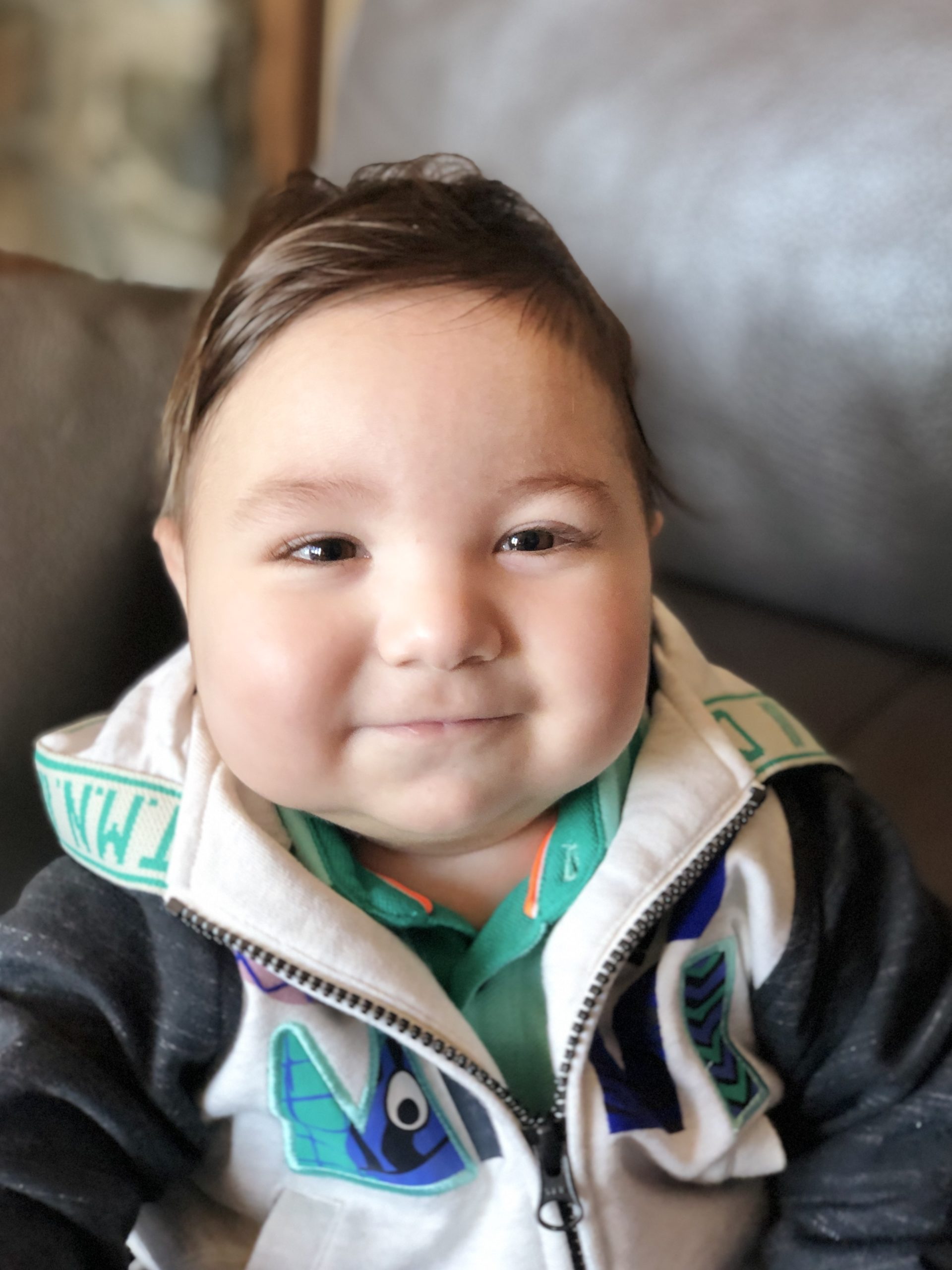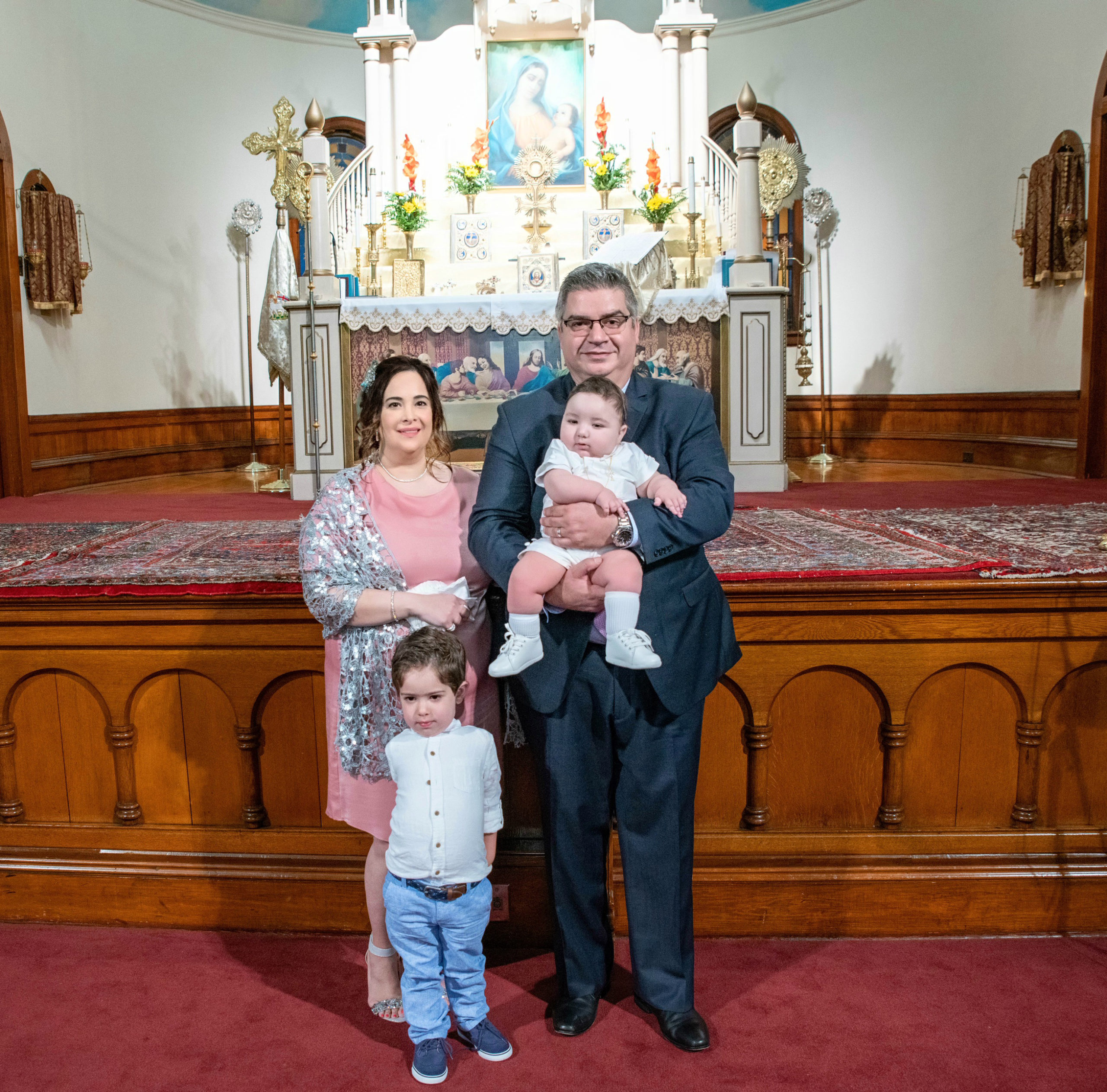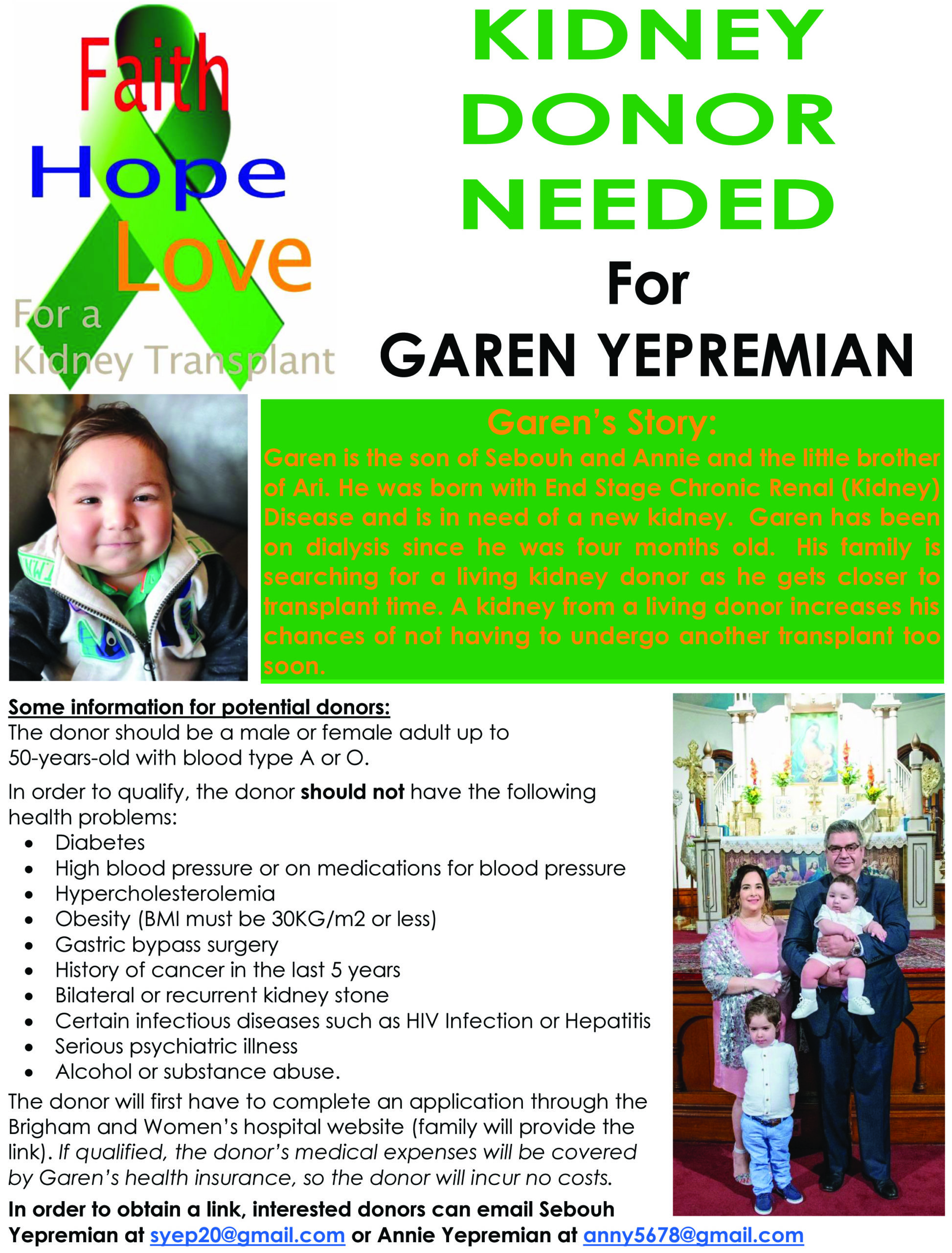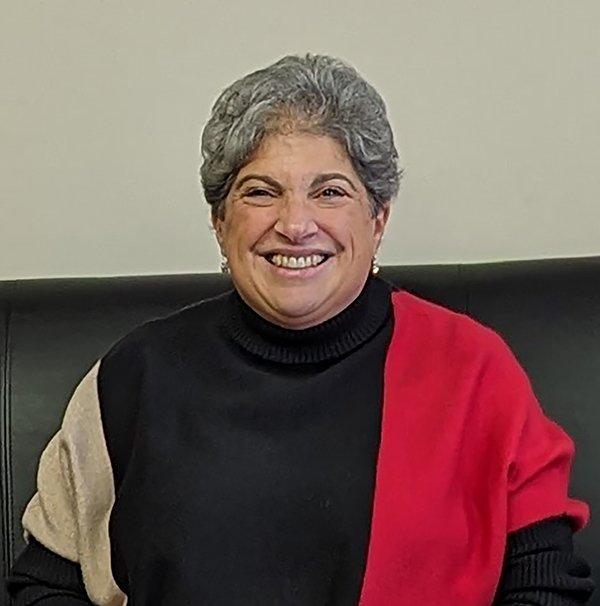As their Armenian compatriots in the homeland fight for the survival of our nation, Sebouh and Annie Yepremian are waging their own battle for the life of their 13-month old son Garen. Baby Garen, as he is affectionately known, was born with end stage chronic kidney failure and is in desperate need of a kidney transplant.

When Annie was six months pregnant and eagerly awaiting the birth of her second son, the family learned that both his kidneys were enlarged. As the baby’s kidneys continued to swell in the third trimester, Annie was transferred to the care of specialists, where she and her husband received the moderately reassuring news that their baby’s kidney concerns could be resolved with a relatively minor procedure immediately after birth that would open the pathway between his kidneys and bladder. “But that’s not what happened,” said Annie ominously during an interview with the Armenian Weekly.
When her fluid levels dropped, the doctors knew they would have to deliver the baby early. They prescribed steroids to increase his little lung capacity and delivered him six weeks early on August 20, 2019. The next day, he was taken into surgery where doctors discovered that his kidneys were beyond repair; tiny baby Garen was going to require dialysis. Since the hospital in RI could not provide what their infant son required for the dialysis, Sebouh and Annie were told that Garen had to be transferred to Boston Children’s Hospital. “And then they’re talking about transplant, and we’re shocked,” explained Sebouh. “In one week, it was so much to deal with and process.”
While the Yepremians were learning about the plans for their new son, they also needed to devise a care plan for their firstborn son. Annie and Ari, who was just two-years old at the time, moved in with her sister in Massachusetts to be closer to the hospital. Arrangements were made for Ari to attend an Armenian daycare at St. James Church with the family’s sincere gratitude. Sebouh stayed behind in Rhode Island to continue working in his family-run jewelry business, heading to Boston regularly to be with his family. Baby Garen was in the hospital for about four months as doctors tried to improve his kidney function with medications and treatment, ultimately placing the necessary catheter in his stomach for dialysis, along with a gastrostomy tube (g-tube) for his nutrition. During this time, his parents learned how to provide his dialysis treatment at their home in RI which lasts 12 hours overnight.
Baby Garen’s daily care involves special formula preparation that includes two different medications to remove the potassium and phosphates, six additional medications, checking his weight, heart rate and blood pressure every morning and evening and communicating with the hospital to monitor his “numbers.” Due to his condition and the accompanying nausea, Garen does not eat solid foods. He receives nutrition through the g-tube, accepting only water by mouth. “He’s very defensive with his mouth because it doesn’t make him feel well,” said Annie. The family is now working with an occupational therapist to introduce appropriate foods. As a premature baby who had to be in bed for the first five months of his life, Garen is delayed in physical abilities such as crawling, so he also requires physical therapy. In addition, the Yepremians’ little son has Wolff Parkinson White syndrome (an extra electrical pathway that causes a rapid heartbeat), discovered through regular electrocardiograms (EKGs); this condition requires checking his heart rate every four hours now, along with physician checks every six months.
Due to the COVID-19 pandemic, Annie has been providing much of his care herself as she stopped the visiting nurse who was helping administer Garen’s weekly hemoglobin shots and checking the catheter and g-tube in his little stomach. At the same time, Ari was home from daycare because it had closed due to pandemic protocols. Since restrictions have lifted a bit, the Yepremians are awaiting the return of a specialized nurse to help care for Garen.

Now, big brother Ari is three-years old and back in daycare. When asked how he has adjusted to his little brother’s arrival and illness, both parents enthusiastically expressed loving praise. “He’s just unbelievable,” exclaimed Sebouh. “He’s obviously a product of my wife’s upbringing,” he continued. Ari is a loving big brother with a kind nature, running to Garen’s rescue if he starts crying. “Don’t cry, baby Garen. It’s okay,” he assures him. The family has an evening routine as they prepare their little son for his overnight dialysis, and Ari participates in the nightly rituals.
As baby Garen continues to grow and thrive in his family’s love, his desperate need for a donor kidney grows with him. Very soon he will be eligible for a kidney transplant. The Yepremians say a living donor is preferable. Here’s why: if the donor is deceased, Garen will have to endure this entire process again at around the age of 10 or 11, whereas if the donor is living he will likely be able to wait until he is at least 20-years old to undergo the next transplant process, which will again include dialysis. “I don’t want him to have to go through all this again at 10 years old. It will be much worse,” said Annie. “He might be afraid and not want to do it.” Regardless of the donor, Garen will need to be on immunosuppressant medications for the rest of his life to prevent rejection of the new kidney. Despite any medical restrictions due to transplant surgery, he should be able to live a normal life, even become an athlete if he wants. “He should have a healthy life, I guess,” said Annie hopefully.
The family is now reaching out to the community to find an eligible kidney donor, an adult up to the age of 50 with blood type A or O. Potential donors should not have any of the following health concerns: diabetes, high blood pressure or on medications for blood pressure, hypercholesterolemia, obesity (BMI must be 30KG/m2 or less), gastric bypass surgery, history of cancer in the last five years, bilateral or recurrent kidney stones, certain infectious diseases such as HIV infection or hepatitis, serious psychiatric illness or alcohol or substance abuse. Potential donors will first have to complete an application through the Brigham and Women’s hospital website (baby Garen’s parents will provide the link). If qualified, the donor’s medical expenses will be covered by Garen’s health insurance. Interested donors can email Sebouh at syep20@gmail.com or Annie at anny5678@gmail.com.
As they anxiously await news of an eligible donor, Sebouh and Annie continue as faithful parishioners at Sts. Vartanantz Church in Providence, expressing their appreciation to Rev. Fr. Kapriel Nazarian and “everybody who has reached out to us from day one from the community and our friends.” “We’re just grateful for the outpouring of support and encouragement,” expressed Sebouh, as Annie sighed in the background quietly hoping for that one heroic donor.




Be the first to comment